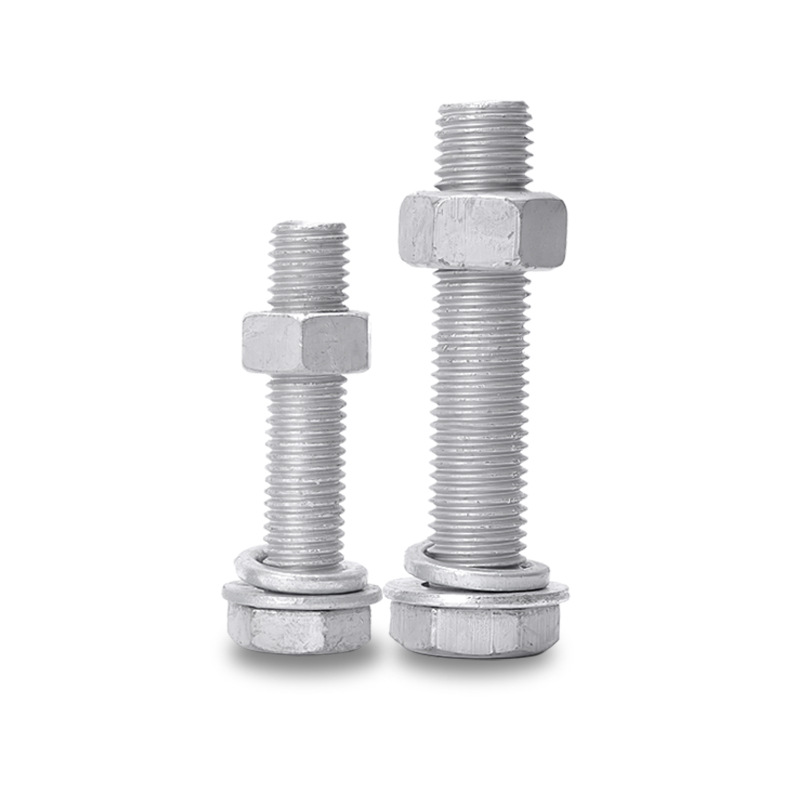

Understanding Self-Drilling Screw Dimensions and Sizes for Optimal Construction and Manufacturing Applications
Ago . 06, 2024 06:56 Back to list
Understanding Self-Drilling Screw Dimensions and Sizes for Optimal Construction and Manufacturing Applications
Understanding Self-Drilling Screw Sizes in Millimeters
Self-drilling screws, also known as drill screws, are a category of fasteners widely used in construction, metalworking, and various DIY projects. Unlike traditional screws that require a pre-drilled hole, self-drilling screws have a built-in drill point that allows them to create their own holes as they are driven into materials. This unique feature not only enhances efficiency but also reduces the risk of material splitting, making them an essential tool for many applications.
One of the critical factors to consider when selecting self-drilling screws is their size, typically measured in millimeters (mm). Understanding the different sizes available and their respective applications can significantly impact the success of a project.
1. Screw Length
The length of a self-drilling screw is one of the most crucial specifications. It is typically measured from the underside of the head to the tip of the screw. The lengths can vary significantly, ranging from as short as 10 mm to as long as 100 mm or more. Choosing the correct length is essential for ensuring good fastening without compromising the structural integrity of the materials being joined. For instance, shorter screws (around 10-20 mm) are suitable for thinner materials, while longer screws (40 mm and above) may be needed for thicker substrates.
In addition to length, the diameter of self-drilling screws is another vital measurement. The diameter affects the screw's grip and holding power. Common diameters range from 3.5 mm to 8 mm. Smaller diameters are typically used for light-duty applications, such as attaching thin metal sheets, while larger diameters are more suited for heavy-duty tasks, like securing heavier metal components or structural joints.
3. Head Types
self drilling screw sizes in mm

Self-drilling screws come with various head types, which influence how they can be driven into materials and what tools can be used. The most common head types include pan, flat, and round. The head shape can affect the screw's load distribution and the aesthetic finish of the project. For example, pan heads may provide a larger surface area, distributing load more evenly and preventing pull-through in softer materials.
4. Material and Coating
The material of the screw and any additional coatings also play a significant role in determining the appropriate size and type for a specific application. Self-drilling screws are often made from steel, stainless steel, or other alloys, and they may have coatings such as zinc or galvanization for corrosion resistance. Depending on the environmental conditions, the choice of material and coating can affect size selection. For instance, rust-prone environments might warrant a larger screw with a protective coating.
5. Application Considerations
Finally, the application itself will dictate the size of the self-drilling screw required. For instance, roofing applications may require longer screws (over 50 mm) with larger diameters to penetrate through roofing materials and into the underlying structure effectively. In contrast, interior applications, such as drywall installation, might only need screws in the range of 25 mm to 38 mm for adequate performance.
Conclusion
In conclusion, understanding the dimensions and specifications of self-drilling screws measured in millimeters is crucial for anyone involved in construction or DIY projects. By carefully considering factors such as length, diameter, head type, material, coatings, and the specific application needs, you can select the right self-drilling screws to ensure a strong, durable, and reliable connection. Whether you are a professional contractor or a weekend warrior, the right screws can make all the difference in the success of your project.
Latest news
-
Hot Dip Galvanized Bolts - LongZe Metal Products|Corrosion Resistance, High Strength
NewsAug.03,2025
-
Premium Cap Nuts: Secure & Durable Fastening Solutions
NewsAug.03,2025
-
High-Strength Hot Dip Galvanized Bolts - LongZe Metal Products|Corrosion Resistance, Customization
NewsAug.03,2025
-
Hot Dip Galvanized Bolts-Hebei Longze|Corrosion Resistance&High Strength
NewsAug.03,2025
-
High-Strength Hot Dip Galvanized Bolts - Hebei Longze|Corrosion Resistance&Customization
NewsAug.02,2025
-
Hot Dip Galvanized Bolts-LongZe|Corrosion Resistance&Customization
NewsAug.02,2025

